Have you ever caught your furry friend sniffing around an anthill? As a responsible pet owner, it’s essential to know what your dog can and cannot consume safely. This comprehensive guide will answer your questions and help you understand the potential risks and consequences associated with dogs eating ants. We’ll explore the natural instincts that drive dogs to investigate these tiny critters, possible hazards, and offer practical advice on what to do if your dog has eaten ants. By the end of this article, you’ll be well-equipped to handle any ant-related incidents.
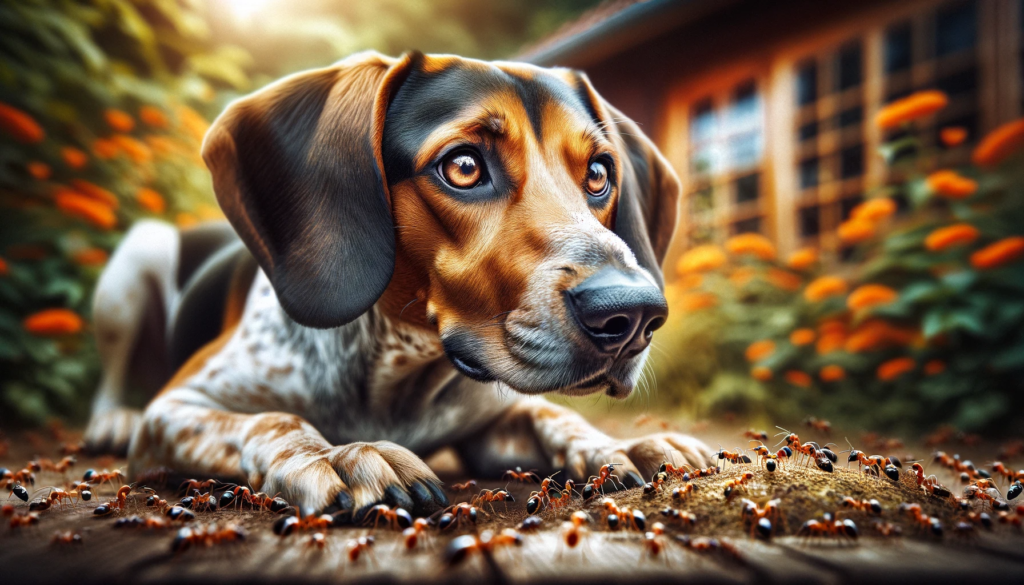
Canine Curiosity and Natural Instincts
Dogs are naturally inquisitive creatures, driven by their keen senses of smell and taste to explore their surroundings. As a result, they often come across ants and other insects in their environment. It’s not unusual for dogs to show interest in these small critters. In general, yes! Dogs can eat ants without issue. In the wild, dogs and their ancestors have been known to consume insects as part of their diet. However, it’s important to consider the differences between the natural diets of wild canines and our domesticated pets.
Insects in a Dog’s Diet: Comparing Wild and Domestic Scenarios
Wild canines, such as wolves or coyotes, may consume insects as part of their varied diet. However, domesticated dogs have evolved to rely on a balanced diet provided by their owners. Although ants are not toxic to dogs and provide a source of protein, they are not an essential or substantial part of a domestic dog’s diet. Moreover, the small number of ants a dog might consume during an encounter would not provide significant nutritional benefits. In other words, ants should not be considered a viable food source for your pet.
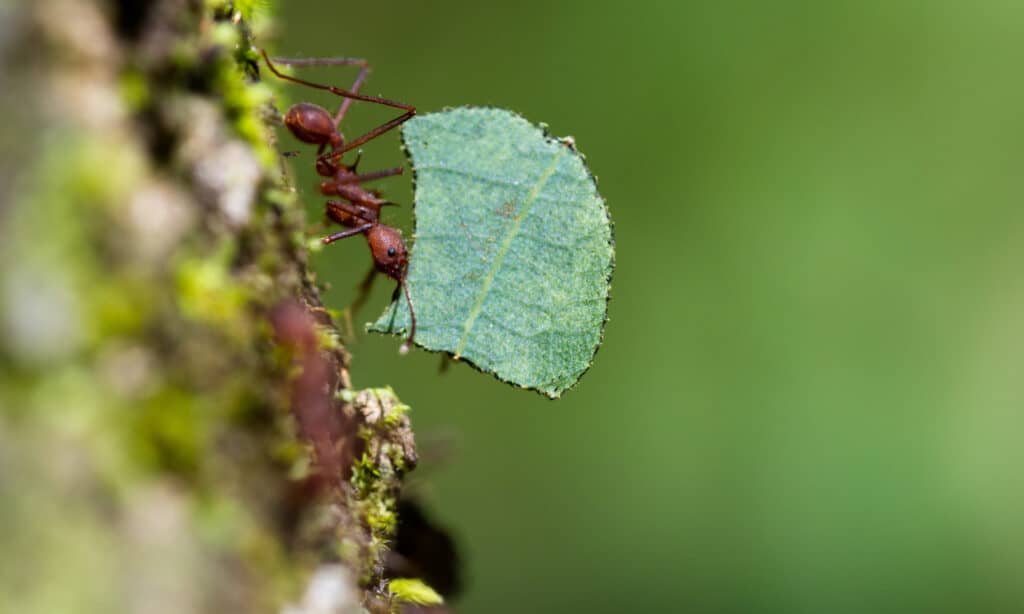
Nutritional Value of Ants for Dogs
As mentioned earlier, ants do provide some protein, as well as trace amounts of vitamins and minerals. However, the quantity of ants a dog would consume in a single instance is negligible compared to their overall dietary needs. In fact, a dog’s regular diet, which typically consists of high-quality commercial dog food or a well-planned homemade meal, is more than sufficient in meeting their nutritional requirements. Thus, while ants are not inherently harmful to dogs, they don’t offer any significant benefits either.
Allergic Reactions in Dogs: Recognizing the Signs
While most dogs can consume ants without any adverse effects, some may develop an allergic reaction. Like humans, dogs can be allergic to a variety of substances, including the proteins found in ants. If your dog is allergic to ants, consuming them may cause symptoms such as itching, hives, swelling around the face, or even difficulty breathing. It’s important to keep a close eye on your dog if they’ve eaten ants and to consult a veterinarian if you notice any of these symptoms.
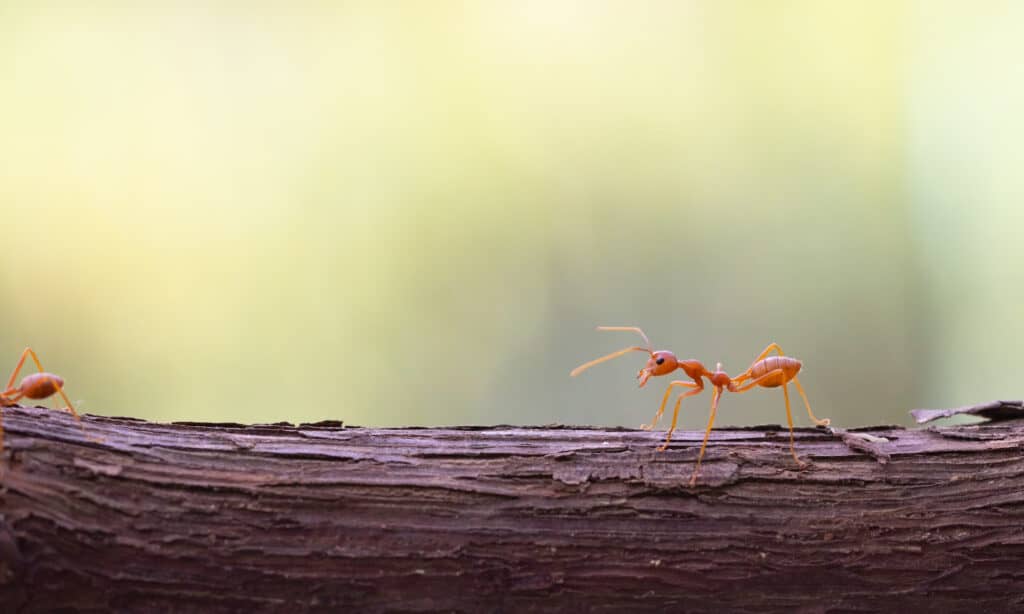
Ant Bites and Stings: Identifying Venomous Ants and Their Impact on Dogs
Some species of ants, such as fire ants or harvester ants, possess venomous stingers that can cause painful bites or stings. If your dog disturbs an anthill or attempts to eat these ants, they may suffer from multiple bites or stings, leading to localized pain, swelling, redness, and irritation. In rare cases, a dog may experience a severe allergic reaction to the venom, which requires immediate veterinary attention. Keep in mind that not all ants are venomous, but it’s essential to be aware of the types of ants present in your area and their potential threat to your dog.
Toxic Substances: How Ants can indirectly harm your dog
Ants may carry harmful substances that can pose a risk to your dog if ingested. For instance, if ants have come into contact with pesticides, insecticides, or other toxic chemicals, these substances may end up in your dog’s system when they eat the ants. This could lead to a range of symptoms, from mild gastrointestinal upset to more severe poisoning, depending on the type and amount of toxin ingested. Contact your veterinarian immediately if you suspect that your dog has consumed ants exposed to toxic substances.
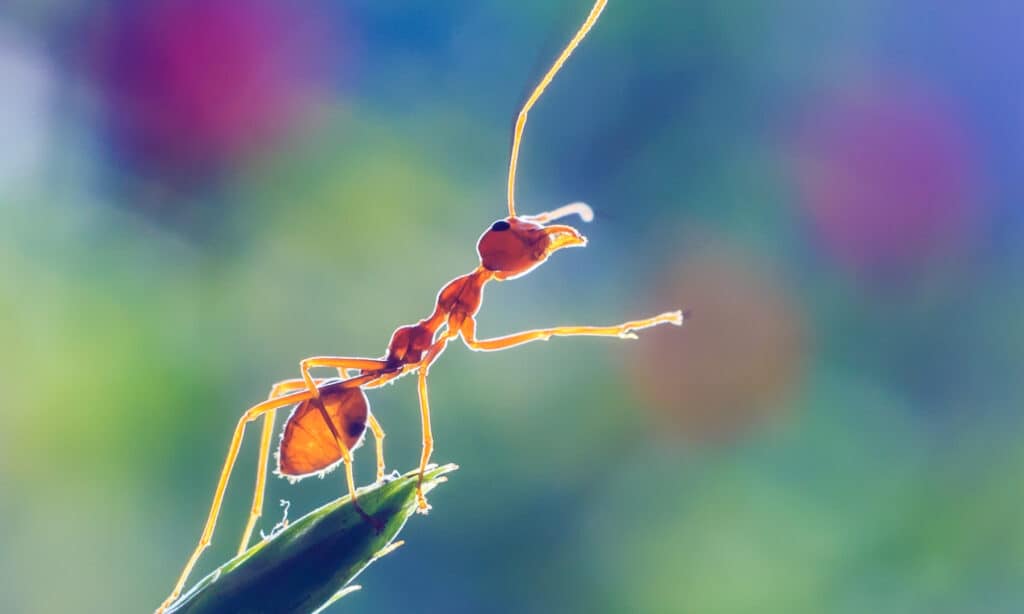
Choking Hazard: Why Size Matters in Ant Consumption
While ants are generally small and easily digestible, there is a risk of choking, particularly for smaller dogs or puppies. A large quantity of ants or an unusually large ant species might pose a choking hazard if they become lodged in your dog’s throat. If you notice your dog coughing, gagging, or struggling to breathe after consuming ants, it’s crucial to seek veterinary assistance right away.
Although dogs can safely consume ants in small quantities, there are potential risks and dangers to be aware of. As responsible pet owners, it’s essential to monitor our dogs for signs of allergic reactions, ant bites or stings, ingestion of toxic substances, or choking hazards after they’ve eaten ants. In the following sections, we’ll explore how to identify if your dog has eaten ants and the steps to take if they have.
Physical Symptoms in Dogs After Eating Ants
When dogs consume ants, they may exhibit certain physical symptoms. Keep an eye out for the following signs:
- Swelling or redness around the mouth: This could indicate that your dog has eaten ants. Especially if they’ve been bitten or stung by venomous species, or if they’re experiencing an allergic reaction.
- Excessive drooling or panting: This may occur if your dog has consumed ants and is experiencing discomfort, irritation, or pain in their mouth or throat.
- Vomiting or diarrhea: Ingesting ants, particularly those that have been exposed to toxic substances, can cause gastrointestinal upset in dogs. This can lead to vomiting or diarrhea.
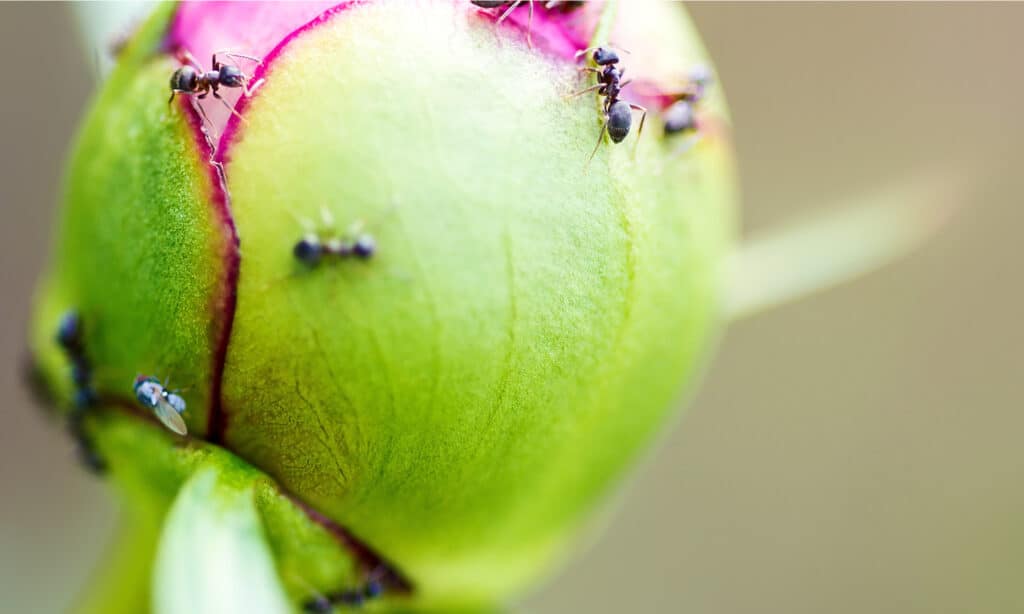
Behavioral Symptoms in Dogs After Eating Ants
In addition to physical symptoms, dogs may display certain behavioral changes after eating ants. Keep a close eye on your dog’s behavior and look for these signs:
- Agitation or restlessness: A dog that has consumed ants may become agitated or restless, pacing around or frequently changing positions.
- Whining or vocalizing: If your dog is in pain or uncomfortable, they might vocalize through whining, yelping, or other noises.
- Scratching or pawing at the mouth: This can be a sign that your dog is trying to dislodge ants or alleviate discomfort caused by bites, stings, or irritation in their mouth or throat.
It’s important to monitor your dog closely for any of these symptoms after they’ve had an encounter with ants. If you observe any concerning signs or if your dog’s condition worsens, it’s important to seek veterinary advice. Next, we’ll discuss the appropriate steps to take if your dog has eaten ants and how to handle potential complications.
Assessing the Situation: Risk Factors to Consider
If you suspect that your dog has eaten ants, assess the situation and consider the potential risks involved. Evaluate the type of ants your dog may have consumed, whether they might have been exposed to toxic substances, and if your dog has a history of allergies. This information will help you determine the level of concern and the appropriate course of action.
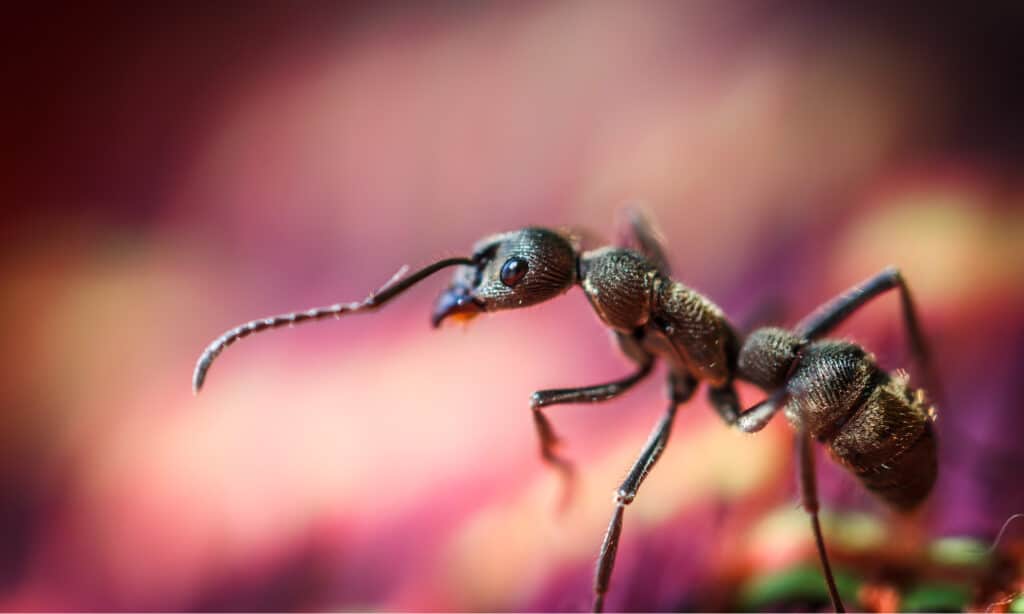
Monitoring Your Dog for Symptoms: What to Look For
Keep a close eye on your dog, watching for any physical or behavioral symptoms mentioned in the previous section. It’s important to monitor your dog’s condition over the next several hours for any signs of complications that may arise.
When to Contact a Veterinarian: Key Indicators
If you observe any of the following signs in your dog, it’s important to contact your veterinarian immediately:
- Severe swelling or redness around the mouth or face
- Difficulty breathing or excessive coughing
- Persistent vomiting or diarrhea
- Signs of severe pain, such as excessive vocalizing or agitation
- Any other concerning symptoms that persist or worsen over time
Your veterinarian will be able to guide you on the best course of action and may recommend bringing your dog in for an examination or treatment if necessary.
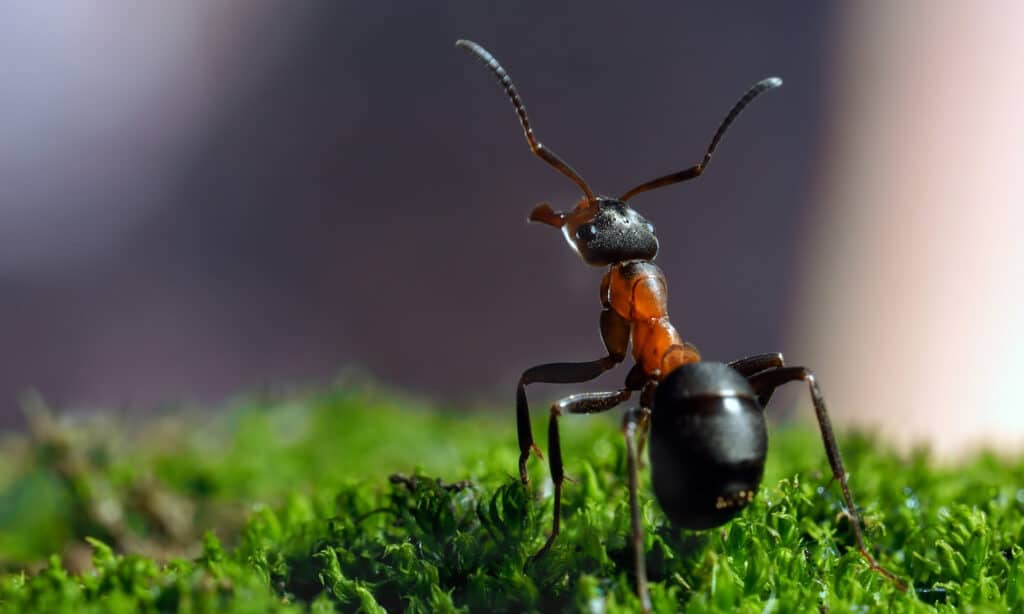
Treatment Options and Preventive Measures: Expert Advice
Depending on the severity of your dog’s symptoms and the specific risks involved, your veterinarian may recommend various treatment options. These could range from administering antihistamines or anti-inflammatory medications for allergic reactions. Or providing pain relief or treatment for toxic exposure. In some cases, your veterinarian may advise you to monitor your dog at home and provide supportive care.
To prevent future ant encounters, consider implementing strategies to keep your home and yard ant-free, train your dog to avoid ants, and use pet-safe ant repellents. By taking these steps, you can help ensure your dog’s safety and well-being in the long run.
By being proactive in assessing the situation you can protect your dog from potential risks and complications. In the following section, we’ll discuss tips for preventing future ant encounters and maintaining a safe environment for your pet.
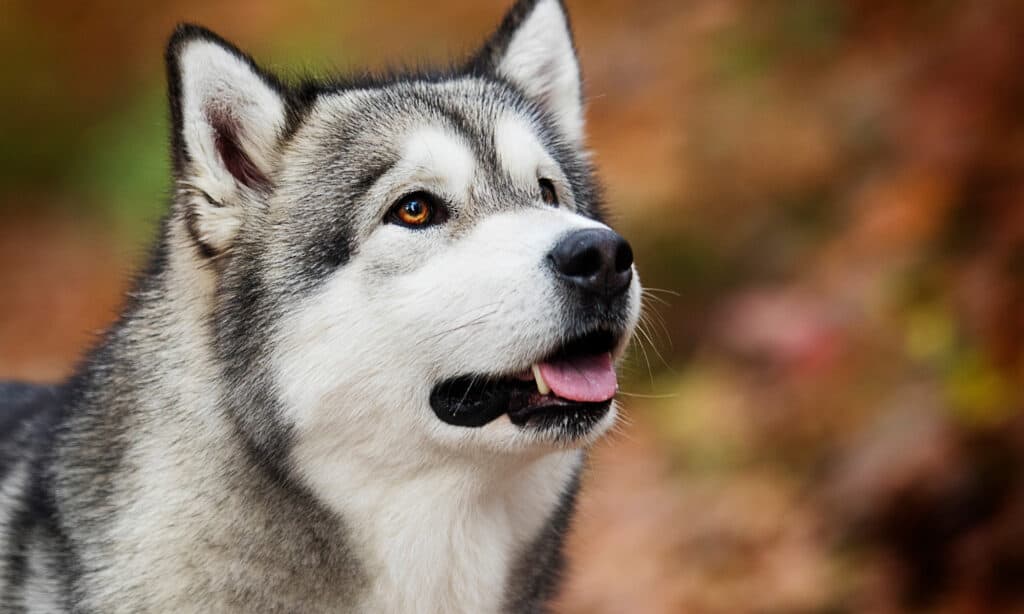
Preventing Future Ant Encounters: Tips for Dog Owners
In this comprehensive guide, we’ve explored the question of whether dogs can safely consume ants. Also, the potential risks and dangers associated with this behavior. While dogs can eat ants in small quantities without significant harm, there could be complications. It’s essential for pet owners to be aware of them. Such as allergic reactions, ant bites or stings, toxic exposure, and choking hazards.
As responsible pet owners, our priority should be to provide a safe and nurturing environment for our beloved canine companions. This includes ensuring they have a balanced and nutritionally complete diet and taking preventive measures to avoid encounters with ants and other potentially harmful insects. By monitoring our dogs closely for any signs of distress, and seeking veterinary advice when necessary, we can help ensure their safety and well-being.
We encourage you to engage with our community by sharing your experiences, asking questions, and seeking advice on this topic. Together, we can create a supportive network of pet owners dedicated to the health and happiness of our furry friends.
~ Sheena
